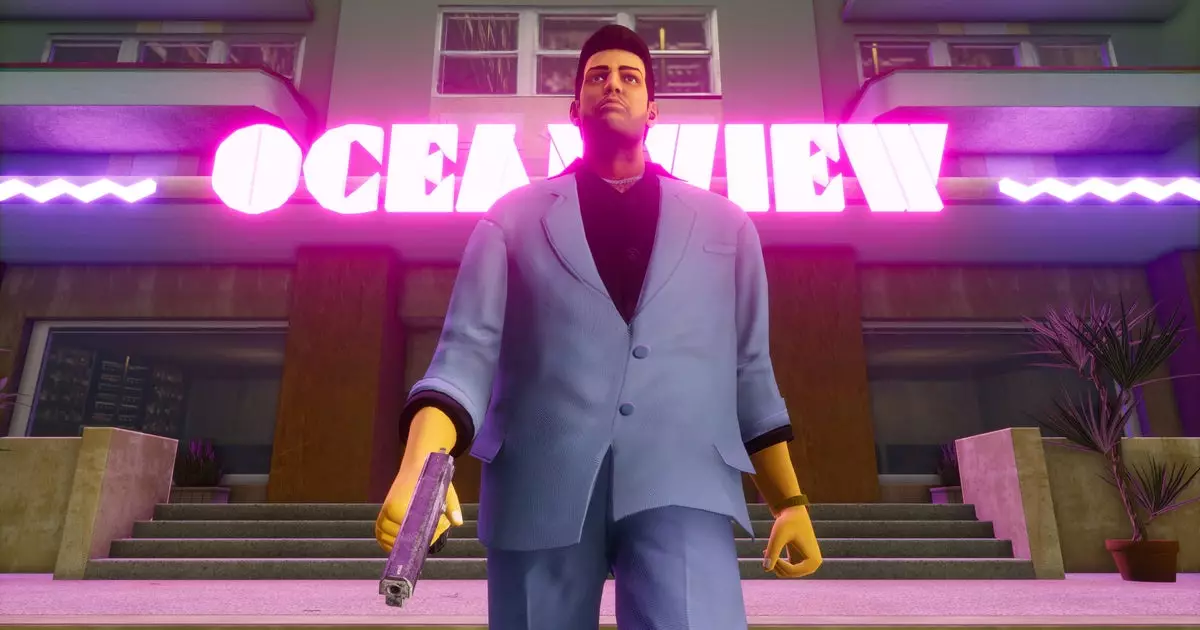When I think back on the Grand Theft Auto series, one particular episode stands out, evoking laughter and a carefree spirit that seems difficult to replicate in today’s gaming culture. Picture this: a friend and I were lost in the mayhem of GTA III, which had just brought the open-world concept into a three-dimensional realm. It was after school, and a pivotal moment of ridiculousness occurred as my friend inexplicably decided to engage a fallen police officer with a wooden baseball bat. This absurdity, a hallmark of youth, typifies a time when video games represented a playground of limitless possibilities and wild antics.
Today, however, younger gamers might struggle to comprehend the significance of such moments. The sheer novelty of being able to interact with the world in unexpected, and often ludicrous, ways encapsulated the revolutionary spirit of the early 3D installments. Yet, while nostalgia is powerful, it doesn’t compel me or many others to revisit those titles, especially following the lackluster reception to “Grand Theft Auto: The Trilogy – The Definitive Edition.” It’s perplexing that a franchise so beloved could falter in its attempts to breathe new life into its past.
Gaming aficionados have grown increasingly critical about remastered versions of classic games, using “Definitive Edition” as a euphemism for half-hearted attempts at nostalgia. The outcry surrounding GTA’s definitive edition feels justified, particularly when one considers the uneven production quality. Many fans are left scratching their heads, questioning if a mere lighting update—available on mobile platforms—can truly rekindle the joy and excitement originally felt. Such updates appear trivial against the backdrop of fans’ high standards shaped by original masterpieces.
Interestingly, recent reports from Rockstar Intel reveal a notable addition to the mobile versions: the “Classic Lightning” mode. This feature aims to restore the atmospheric aesthetics of the original titles, which might entice some nostalgic players back to the fold. However, the decision to exclude Grove Street Games from the splash screens—rumored but unconfirmed—paints a somewhat bitter picture of corporate priorities. It feels capricious and might alienate a portion of the player base who still harbors fondness for these remastering efforts.
Despite the outcry surrounding the remasters, there is hope on the horizon for the franchise. Take-Two Interactive, the parent company of Rockstar Games, expresses optimism regarding a potential release window for the next installment, likely positioned for Fall 2025. This future project promises to showcase advancements in graphics, storytelling, and gameplay mechanics that could rejuvenate the franchise, reminding both old and new players why GTA remains a seminal part of the gaming landscape.
As fans anxiously await further details, the critical gaze towards past projects serves as a stark reminder of the challenges inherent in upholding a series’ legacy. GTA’s evolution from sheer chaos to an icon of controversy offers a fascinating glimpse into the complexities of gaming nostalgia. One can only hope that the forthcoming releases will honor the spirit of earlier titles while paving the way for another transformative chapter in the franchise.


Leave a Reply